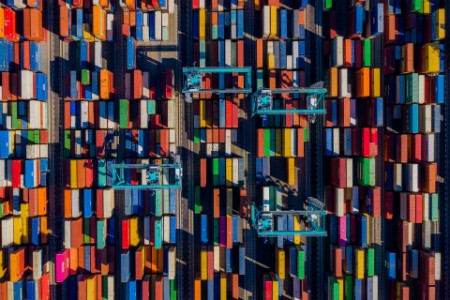Significant progress is already being made.
Australia's National Agricultural Traceability Strategy3 demonstrates the importance of collaboration between government and industry in driving digital innovation in supply chain management. By co-designing a 10-year roadmap with industry stakeholders, the Australian government aims to enhance traceability, improve trade compliance, and boost competitiveness in agriculture.
Just across the equator, Singapore's Smart Port initiative exemplifies digitisation’s enhancement of port operations and the ability to improve supply chain logistics. It uses Internet of things (IoT) sensors, AI-powered analytics and Blockchain technology to transform Singapore’s ports. Creating intelligent, data-driven hubs for streamlining cargo handling, improving vessel scheduling and increasing overall efficiency.
Further afield, the United Kingdom’s Electronic Trade Documents Act epitomises the role of regulatory reform in promoting digitalisation and streamlining international trade processes. It has paved the way for completely digitalised shipments, reduced paperwork and expedited cross-border transactions. By granting legal recognition to digital trade documents and ensuring compliance with regulatory requirements.
Government involvement is a critical success factor
While the benefits of digital supply chains are undeniable, their adoption and implementation are not without challenges. Government is instrumental in navigating and overcoming these by being a catalyst, enabler, and regulator. By shaping digital supply chain innovation, driving policy reform, and fostering collaboration between stakeholders.
From investment in digital infrastructure to the formulation of regulatory frameworks, government involvement is indispensable.
It plays a critical role in setting clear and flexible regulatory frameworks that promote innovation, ensure data privacy, and safeguard consumer rights. Together with its agencies, it can develop standards and best practices that facilitate interoperability, reduce compliance costs, and foster policy and legislative innovation.
Government must also play a role in the development and maintenance of national information and communication technology (ICT) infrastructure. This includes networks, training enhanced digital skills that enable business, and creating heightened digital security awareness to foster a cyber secure culture.
Effective collaboration between government agencies, industry associations and academia is another crucial aspect of driving innovation and knowledge-sharing. Government can facilitate industry dialogue to address common challenges and co-create solutions by facilitating advisory councils, task forces and industry forums. Especially to overcome common frictions that impede progress, such as alleviating resistance to change, dealing with unfounded fears of job losses and addressing the lack of digital literacy absent in some industries.


